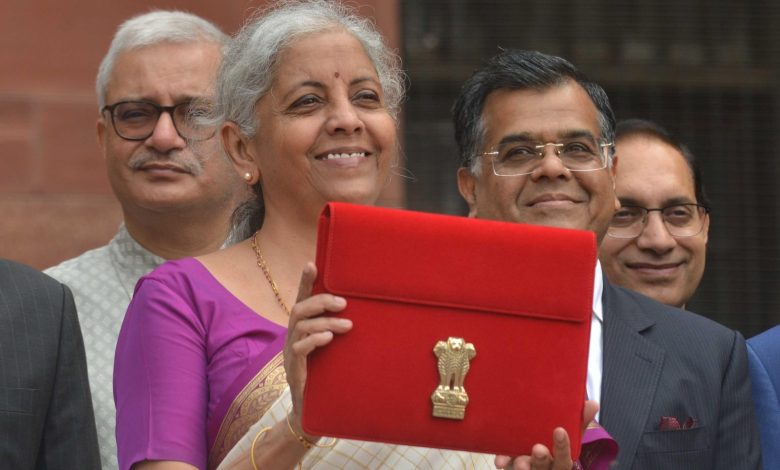Union Budget 2024 promises a paid internship scheme for the youth: What is it all about?

Nirmala Sitharaman took the floor of the Lok Sabha today, July 23 in what was her record-breaking 7th budget address. The Union Budget 2024-25 had several highlights ranging from a reduced fiscal deficit target to a revised income tax structure, among other key points. Most relevant for the youth however, has been the paid internship scheme which ensures a renewed wave of opportunities for them. Let’s decode what all it has to offer. Nirmala Sitharaman pictured at the Lok Sabha on July 23, with the Union Budget The basicsThe paid internship scheme aims to target 1 crore youth over the next 5 years, providing them with government-mandated internship opportunities across the country’s top 500 companies. A monthly stipend of ₹5,000 in tow with a one-time assance sum of ₹6,000 will be ensured for every intern. The companies participating in this initiative will be undertaking the cost of training the interns on-board, partially funded via their CSR budget. Top 500 companies: What kind of exposure can the youth expect?An assured chance to work across the country’s top-ranking companies presents itself as a rather enticing opportunity. The possibility of a spot, experiencing the hustle-bustle and inner workings of India’s “top 500 companies” makes it possible for the youth to eye having names like Reliance Industries, TCS, HDFC Bank, Bharti Airtel, ICICI Bank, State Bank of India and Infosys, Life Insurance, Hindustan Unilever and ITC on their CVs. How is this scheme being funded?The government will be allocating a sizeable fun of ₹1.48 lakh crores, geared at enhancing education, employment and skill, aiming to eventually create 4.1 crore jobs. As mentioned earlier, the CSR budget for the participating companies will also be funding this paid internship scheme. As per Section 135 of the Companies Act 2013, companies which fulfill certain criteria when it comes to their net worth, turnover and profit, are expected to allocate 2 percent of their average net profit over the past 3 years in pursuing their corporate social responsibility goals. What does this promise the youth?The opportunity to work in a thorough professional environment will go a long way in sharpening the youth’s hard skills as well as soft skills as they gear up to officially enter the workforce. The long term goal of this scheme is to boost employment, not just figuratively but in an effective manner. What does the youth have to say?With unpaid internships often being equated with free labour, a specified stipend, packages the opportunity as more lucrative for those aspiring to build strongly-grounded careers. Having the government’s assurance in this respect, also ensures that the cumulative takeaway from the experience actually contributes to the youth’s professional graph instead of just being a time-killing placeholder. Amity University BBA student, Adina Basu, 20, currently interning at ITC, says, “For me personally it sounds promising since more than half of the internships are so unstructured and haphazard. The companies usually help in absolutely nothing and after all the work that you put in, to not be acknowledged in any way, ends up making us feel defeated. So hopefully the new scheme should give internships some sort of structure”. In the same breath, Preet Shyamsukha, 21, has his reservations about how effective the scheme will pan out to be. He says, “In the broader picture it will be beneficial only if red tape bureaucracy doesn’t take place and the interns are converted into salaried individuals”. Diya Paul, 20, currently interning at Maxview Now, highlights how the initiative is a positive step towards bridging the gap between theoretical education and practical hands-on experience. She says, “This initiative is a powerful step towards nurturing young talent, bridging the gap between education and employment, and unlocking the true potential of the youth”. Do you think this scheme will be able to fortify the youth’s professional graphs?







